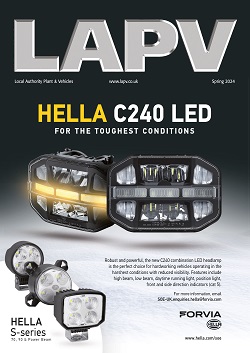The waste and recycling sector has seen many changes over the decades, particularly as the issues of sustainability and efficiency have grown to dominate the industry.As local authorities have adapted to meet new demands here are some of the key changes that we've seen as a refuse collection vehicle manufacturer:
<
p>1) Recycling rates
Perhaps one of the biggest transformations the industry has seen is the phenomenal increase in recycling. Gone are the days when everything was thrown out in a black bag: instead we're now seeing local authorities collecting separate waste streams such as glass, plastics and paper, which are diverted from landfill and sent for recycling.
According to the latest figures from the Department for Food, Environment and Rural Affairs (Defra), recycling rates hit a record high last year, with 43% of household waste recycled, reused or composted.
2) Fuel emissions
Fully loaded refuse collection vehicles require a lot of horsepower.This, combined with the stop-start nature of collection rounds, means they need a great deal more fuel than the average family car. However, thanks to technological developments such as our Fuel Saver Pack and improved driver training, RCVs have become more efficient over the years, achieving more miles per gallon and delivering significant cost savings for local authorities.
EU emissions targets are also a driving force when it comes to reducing fuel emissions.All new registrations of heavy good vehicles after 31 December 2013 must have a Euro 6 engine fitted and this is something we're currently developing at Dennis Eagle to help local authorities comply with this legislation.
3) Safety
In recent years, the health and safety of refuse vehicle operatives and the general public has rightly increased in importance which, in turn, has led to changes in vehicle design.Our low entry cab was first introduced in 1992. The cab design made it easier for crews to climb in and out, which helped to reduce the amount of leg and back injuries in the industry.
Since our low entry cab was first introduced, legislation such as the Machinery Directive 2006/42/EC and the European crash test ECE-R29 have played a major role in driving further improvements in the industry, bringing commonality to health and safety requirements for machinery across the EU.
As all these points show, the refuse collection industry is constantly evolving to meet the needs of our society. It's hard to predict exactly what changes the next few decades will bring, but I certainly think we can look forward to a future that is even more sustainable, efficient and safe.
Richard Taylor, Sales & Marketing Director, Dennis Eagle

